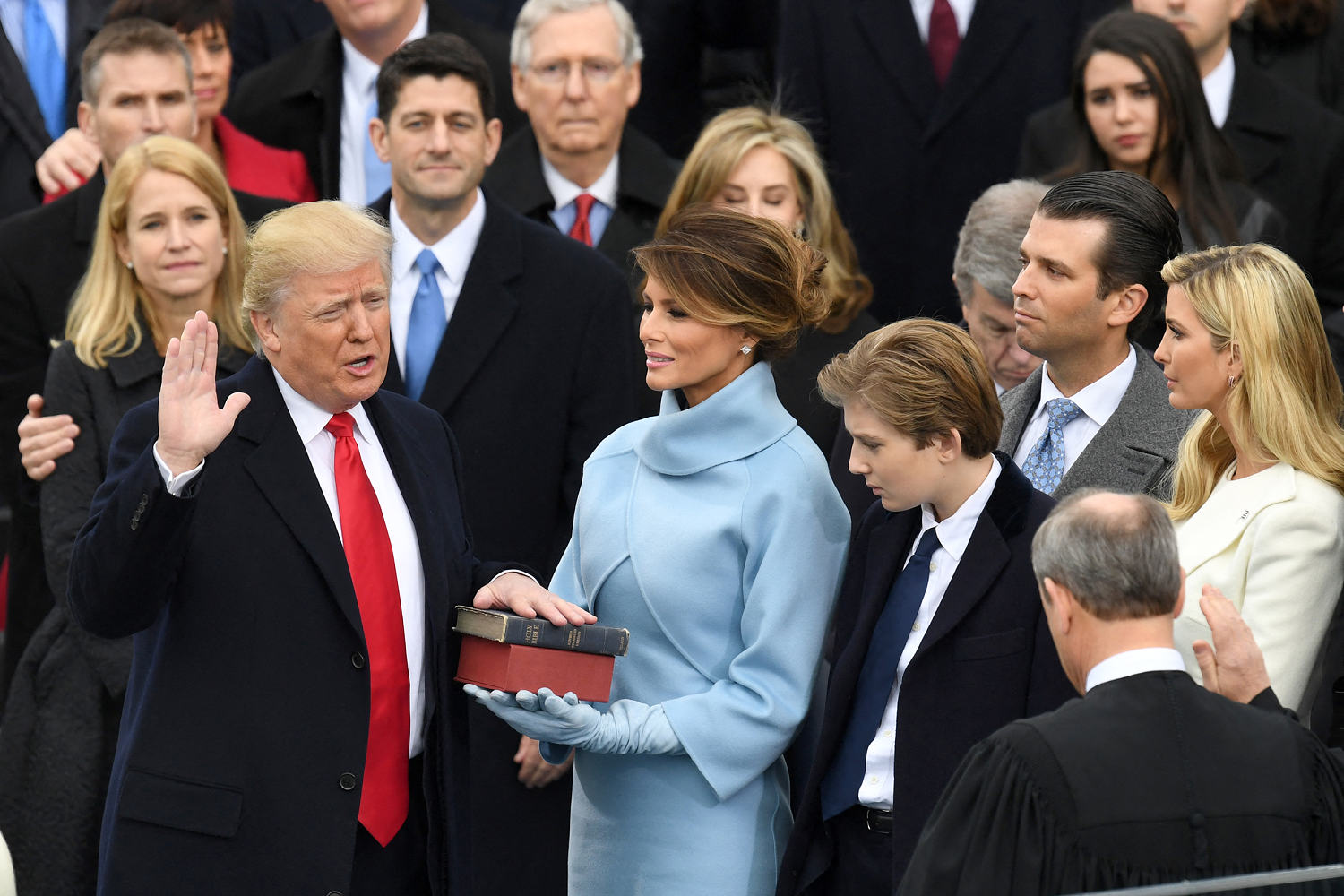What will happen to Congress's standing committees?

The heart and soul of the House and Senate have always been the standing committees that are reconstituted and reelected in the House every two years. Senate committees, on the other hand, are blessed with eternal life, since the Senate is a “continuing body.” What about today? Is the question, “Whither the standing committees?” And is the obvious answer, “Wither the standing committees?"
Over the last two weeks, we have seen various Senate committees flex their muscles in the confirmation process for high-level executive branch positions. On the whole, senators acquitted themselves well. Most were well-prepared, having vetted many of the nominees privately before the public hearings. They asked well-informed questions, pressing nominees repeatedly for more specific responses.
Overall, the confirmation process is an important eye-opener for senators and the public to assess the quality of Cabinet secretary nominees who will be overseeing major departments and issues for the next four years. The process can be viewed as an early notice system for what directions, attitudes and policy proclivities the new administration will be embracing during its time in office.
But the confirmation process is just a small part of the job committees have to do throughout their tenure. At the top of the list is legislating followed by oversight. Those who argue the committee system has declined use past performance measures to make their assessments. By that gauge, committees do appear to be less active and productive than in the past.
One cannot judge committee success levels solely by the number of bills reported, hearings conducted or oversight reports churned-out. The world has become much more complex, making it tougher for Congress to wrap its mind around and tackle these new challenges.
There was a time when political scientists and party analysts could divide Congress’s historic development into alternating periods of institutional control. There was “committee governance,” when committee chairmen reigned supreme; and “party governance,” when party leaders called the shots and committees dutifully followed their lead and directives.
But that became somewhat muddled when members intervened with a third way, and that was to discuss and then resolve internal disputes through party caucuses. Since the congressional reform revolution of the 1970s, Congress, in some ways, has been more open, accommodating and accountable, at least within party councils.
That relatively new operating model, however, has produced its own problems, namely, a fiercer, more sharply honed oppositional system that is less likely to embrace bipartisanship and compromise. Today that system is characterized by such terms as anger, hostility, divisiveness and cutthroat partisanship. Yes, it certainly is closer to party governance than committee governance, but it is party caucus governing as opposed to party leadership control.
Former Senate Majority Leader Lyndon Johnson (D-Texas) and House Speaker Sam Rayburn (D-Texas) were great party leaders in their time. Former House Speaker Nancy Pelosi (D-Calif.) probably comes closest to their caliber of leadership in modern times. However, the real power today has gravitated to the more ambitious and motivational party members who come up with appealing ideas and the ability to persuade their caucus colleagues to follow.
A more splintered and combative environment leaves Congress incapable of forging compromises that can be signed into law. The closest we have come in recent times have been the rare instances of 12th-hour bipartisan agreements to prevent government shutdowns. But each of those instances has carried with it new perils for both parties’ leaders. Instead of being a new governing model, such last-minute funding deals have more resembled a fateful roll of the dice.
It was suggested at the outset of this piece that it would be unfair to gauge the success of committees today by measures of productivity used in the past since the world and its problems have become more complex and entangled. That was not meant as an excuse for the seeming laggardness of committees but more as an indicator of what complexity has wrought.
Complexity can breed contempt, and the contemptuous and paralyzing partisanship on display today is borne in part of complexity’s effects. Members wonder: What is it all about and what can be done about it? That’s when the tiny cracks first appear then spiderweb outwards into a widening chasm.
At least in times of alternating party and committee governance the word governance was the key to how to sow policy compromises that can take root in common ground and flourish. Today such governance has been replaced by partisan confrontational clashes, most of which can only be settled at the next election.
Don Wolfensberger is a 28-year congressional staff veteran culminating as chief-of-staff of the House Rules Committee in 1995. He is author of, “Congress and the People: Deliberative Democracy on Trial” (2000), and, “Changing Cultures in Congress: From Fair Play to Power Plays” (2018).
-

Congress must stand up to Trump’s USAID power grab — before it’s too late
More than ever before, the American people need and deserve a strong Congress to check and balance Trump’s increasingly authoritarian White House.The Hill - 1d -
What's happening with Orsini?
This article was translated into English by Artificial Intelligence. You can read the original version in 🇪🇸 here.Nicolás Orsini's current situation at Boca Juniors is quite particular now that...Yahoo Sports - 3d -

What Happens After Dry January?
Dry January is nearly over, but it could be just the start of a more mindful relationship with alcohol.The New York Times - Jan. 27 -
What happened to the Trump ‘resistance’?
Disorganised and dispirited, those opposed to the president’s policies have grown unexpectedly quietFinancial Times - Jan. 24 -
What happens if your bankruptcy is denied?
Not all bankruptcy filings are approved by the courts. Here's what could happen if yours is turned down.CBS News - Jan. 23 -

What happens on Inauguration Day?
President-elect Donald Trump will be sworn into office on Jan. 20, officially becoming president and starting Day One of his second term. Here's what to watch.NBC News - Jan. 20 -

Biden urges Congress to ‘step up’ on California aid as LA warned of ‘explosive fire growth’ – as it happened
This blog is now closed. You can read our latest story here . Tell us about the financial consequences you are facing due to the California fires Weather forecasters are predicting that the ...The Guardian - Jan. 14 -
What may happen in the aftermath of the Los Angeles fires
The quantum-computing-stock meltdown, surging bond yields and how to decide whether or not a Roth retirement account is best for you.MarketWatch - Jan. 11 -
What happened during Trump's "hush money" sentencing
On Friday, a New York judge sentenced President-elect Donald Trump in his criminal "hush money" case. Trump will now officially enter the White House as a convicted felon. CBS News' Scott ...CBS News - Jan. 10 -

Ryan Giggs - what happened?
BBC sports editor Dan Roan asks what happened to the coaching career of former Manchester United player and Wales manager Ryan Giggs.BBC News - Jan. 9
More from The Hill
-

IRS: Some employees can’t take buyout until after filing deadline
A letter sent to Internal Revenue Service (IRS) employees said those involved in the 2025 tax season won’t be able to accept the buyout offer President Trump offered federal employees until after ...The Hill - 17m -

Second lawsuit filed challenging Trump’s transgender troops ban
A second group of transgender service members sued President Trump Thursday over his executive order barring transgender people from serving openly in the military. Trump signed the order last ...The Hill - 18m -

What Trump actually wants in the Middle East
While many foreign policy experts see his approach as erratic, Trump operates from a logic those experts abandoned long ago: the art of geopolitics.The Hill - 19m -

JD Vance's half brother runs for Cincinnati mayor
Vice President Vance’s half brother, Cory Bowman, has collected petitions to run for the mayor of Cincinnati according to The Enquirer. Bowman said his bid was inspired by his sibling who was ...The Hill - 19m -

Politico publishes note 'to set the record straight' on government subscription outrage
Politico on Thursday published a note to readers clarifying how its subscription model works as it faces a flurry of attacks from critics, including President Trump, who have accused it of ...The Hill - 26m
More in Politics
-

IRS: Some employees can’t take buyout until after filing deadline
A letter sent to Internal Revenue Service (IRS) employees said those involved in the 2025 tax season won’t be able to accept the buyout offer President Trump offered federal employees until after ...The Hill - 17m -

Second lawsuit filed challenging Trump’s transgender troops ban
A second group of transgender service members sued President Trump Thursday over his executive order barring transgender people from serving openly in the military. Trump signed the order last ...The Hill - 18m -

What Trump actually wants in the Middle East
While many foreign policy experts see his approach as erratic, Trump operates from a logic those experts abandoned long ago: the art of geopolitics.The Hill - 19m -

JD Vance's half brother runs for Cincinnati mayor
Vice President Vance’s half brother, Cory Bowman, has collected petitions to run for the mayor of Cincinnati according to The Enquirer. Bowman said his bid was inspired by his sibling who was ...The Hill - 19m -

Politico publishes note 'to set the record straight' on government subscription outrage
Politico on Thursday published a note to readers clarifying how its subscription model works as it faces a flurry of attacks from critics, including President Trump, who have accused it of ...The Hill - 26m
